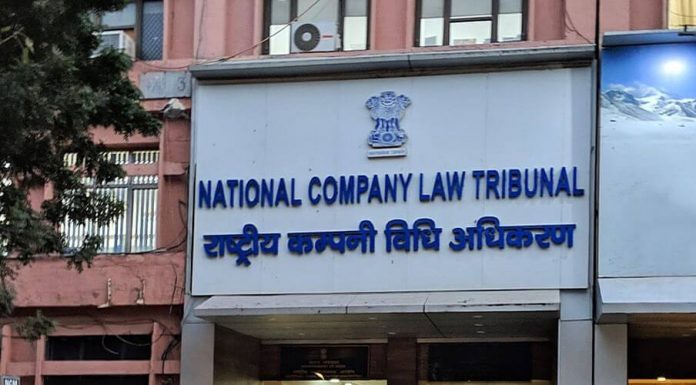This article has been written by Taniksha Gupta pursuing Diploma in M&A, Institutional Finance and Investment Laws (PE and VC transactions) and has been edited by Oishika Banerji (Team Lawsikho).
This article has been published by Sneha Mahawar.
Table of Contents
Introduction
Recently, the National Company Law Appellate Tribunal (NCLAT) rejected Amazon’s plea challenging the decision of the Competition Commission of India (CCI) to suspend the approval of a deal between Amazon and Future Coupons. This resulted in an imposition of a fine of Rs. 200 crore on Amazon and an additional fine of Rs. 50 lakhs. Through the deal, Amazon acquired a 49% stake in Future Coupons Pvt Ltd (FCPL), a subsidiary of Future Group, which owns 7.3% shares in Future retail. The deal was approved by CCI in 2019, which suspended its own approval back in December 2021. This article deals with the Amazon-Future dispute thereby focusing on the NCLAT Order that upheld the CCI’s Order.
An overview of the case
The three issues that are primarily dealt in this article are:
- Why was the deal initially approved and later suspended?
- Why did the NCLAT uphold the CCI’s order?
- Was there any other deal that created further issues?
To understand the whole matter, let’s go back to September 2019, when Amazon and Future Coupons entered into a deal through which Amazon acquired a 49% stake in Future Coupons, as discussed above. Another deal that played a significant role in the whole matter is the deal between Reliance and Future Group. This was at a time in August 2020, when Future Group was on the verge of bankruptcy, in furtherance of which it signed an MoU with Reliance Retail for the sale of its customer retail for INR 24, 713 Cr.
The issue in the case
The issue lies at the core of both deals. The Amazon-Future deal gave birth to the claim of Amazon stating that the deal mentioned a list of 30 entities with whom the Future Coupons could not transact any of its retail assets, one of which was Reliance Retail. As a rationale for putting such a limitation, Amazon stated that the purpose of the investment was the business potential of Future Coupons to create long-term value and provide a return on the investment made by Amazon.
In furtherance of the above restriction, Amazon became aggrieved by the Reliance-Future deal of 2020. Since the Amazon-Future deal specified that any disputes would be arbitrated under Singapore International Arbitration Centre (SIAC) Rules, Amazon initiated arbitration proceedings at the SIAC, seeking a restriction on the Reliance-Future deal. From SIAC, Amazon came back with an interim order asking Future to restrict the Reliance-Future deal. However, the matter didn’t end here. It seemed that it had just started!
Parallel to the Amazon proceedings, Future Retail Ltd. (FRL) filed a suit before the Delhi High Court against Amazon for tortious interference in the scheme for the sale of assets, wherein the findings of the single judge came soon after the SIAC order and were diametrically opposite to the interim award. After this, a series of cases were filed by both parties against each other, including appeals to the division benches and a special leave petition before the Apex Court.
While all of this was happening, the CCI sent a show-cause notice in July 2021 to Amazon over the deal stating that it was a misrepresentation of interests and concealment of material facts. The move was taken after different stakeholders including an independent director of Future Retail and the Confederation of All India Traders (CAIT) pointed out that Amazon had not clearly disclosed to the CCI- its intention to take strategic control over FRL.
Judgment and analysis
It was found out that Amazon said that the rationale for the investment was the business potential of Future Coupons, which would create long-term value and return on the investment made by Amazon. However, Amazon’s internal correspondence disclosed a letter sent by Amazon India’s head of legal affairs to Amazon founder Jeff Bezos on July 18, 2019, seeking approval to close the deal. The mail stated that Amazon would use a “twin-entity investment” structure to invest in Future Retails Limited due to foreign investment policy restrictions. This prompted Amazon to invest in the promoter firm, Future Coupons Pvt Ltd instead of directly infusing capital into Future Retails Limited.
CCI’s order stated that the emails revealed that Future Coupons was merely a vehicle for Amazon to acquire the interest of Future Retail. In furtherance of these findings, CCI imposed a penalty of Rs. 200 Crore on Amazon for failing to notify the details of its ‘combination’ as required by law. CCI also imposed a separate penalty of Rs. 2 Crore for suppressing the actual scope and purpose of the combination.
Present scenario of the case
Aggrieved by the CCI’s order, Amazon, the American e-commerce giant, challenged it before the NCLAT. NCLAT concluded its hearing in April 2022, over Amazon’s plea after all parties filed revised notes of submissions along with relevant citations before the registry. Finally, on June 13, 2022, the two-member bench of NCLAT comprising Justice M Venugopal and Dr Alok Kumar Mishra upheld the CCI’s order. NCLAT slightly modified the orders of CCI in its order, and said the penalty of Rs. 1 crore each imposed was “on the higher side” and reduced it to Rs 50 lakh each as per Sections 44 and 45 of the Competition Act, 2002 directing Amazon to pay Rs. 1 crore within 45 days calculated from the date of passing of judgment. Along with this, NCLAT also upheld the penalty of Rs. 200 crore imposed by CCI on a direct subsidiary of Amazon, for failure to notify the combination in the requisite terms in accordance with Section 6(2) of the Competition Act, 2002.
What was Amazon’s say in the matter
During the argument before the NCLAT, Amazon stated that all the agreements regarding the purchase of a 49% stake in FCPL were disclosed before the CCI and nothing was hidden. It further said that the Commission conducted a competition assessment of the deal and it was held that there was no appreciable adverse effect on the competition. Amazon also argued that the initial approval order was a speaking order or one which explains the rationale behind the order.
Did the tribunal affirm the CCI’s power in the matter
Well, it did. CCI’s power of putting an earlier order in abeyance was given validity by the NCLAT stating that “CCI has residual power to revoke, modify, alter any previous order passed by it in abeyance based on misstatement or misrepresentation of facts”. The 2019 approval was granted as it was only the “proposed transaction” and not the “business transaction”, the CCI stated, by reiterating that it possesses the “requisite power” to annul an order if the same was procured by means of fraud or misrepresentation.
Is this the end of the Amazon-Future dispute? Will Amazon go to a higher court
Though an Amazon spokesperson didn’t specify that the company would challenge the NCLAT’s order in a higher court, as per legal observers, the e-commerce giant would surely appeal in due course of time. Alternatively, Amazon could also take the route of filing a fresh form under competition law rules and regulations to seek fresh approval in line with the CCI and NCLAT judgments. Moreover, the NCLAT’s order may also have some impact on the number of cases filed by the Future Group and Amazon against each other before the Delhi HC and the Apex Court.
Does the order make any impact on the Future-Reliance deal?
The most interesting part is that the deal which initially created all these disputes i.e. the Reliance-Future deal was called off by Reliance Industries Ltd. in April 2022 stating the rejection of the scheme by the secured creditors of FRL. Thereby, Reliance had to face no immediate implication on its deal with Future Retail due to the NCLAT’s order.
Conclusion
Looking at the matter from the point of view of arbitration law, the parties, at one point, also went to Apex Court, wherein the Honorable Court changed the whole scenario of the concept of Emergency Arbitration (EA) by giving recognition to the emergency awards passed in an Indian-seated arbitration under Section 17 (Interim measures ordered by arbitral tribunal) of the Arbitration and Conciliation Act, 1996 Act and holding that an appeal under Section 37 (Appealable orders) is not maintainable against enforcement of an order of emergency arbitrator under Section 17. When it comes to the NCLAT’s order, the decision is indeed a significant one in the context of competition law and regulatory procedure in India. The fate of Amazon in the matter would act as a caution for all other companies to seek CCI’s approval in line with regulatory compliance. The scope and importance of disclosures have been highlighted by the order. One of the roles of the CCI is to prevent activities that may adversely affect fair competition, in furtherance of which CCI was seen taking active steps in the Amazon-Future matter. The scope of the CCI’s powers is also highlighted in the matter, wherein it was affirmed by the tribunal that the CCI could keep an approval in abeyance, as it did, in this case, thereby implying that CCI can suspend its approval under exceptional circumstances. CAIT, welcoming the move said that any move to captivate Indian e-commerce and retail trade by anyone will not succeed under any circumstances.
What remains to be seen now is what will be the next steps of Amazon, instead, if there will be any!
Students of Lawsikho courses regularly produce writing assignments and work on practical exercises as a part of their coursework and develop themselves in real-life practical skills.
LawSikho has created a telegram group for exchanging legal knowledge, referrals, and various opportunities. You can click on this link and join:
Follow us on Instagram and subscribe to our YouTube channel for more amazing legal content.
 Serato DJ Crack 2025Serato DJ PRO Crack
Serato DJ Crack 2025Serato DJ PRO Crack








 Allow notifications
Allow notifications


